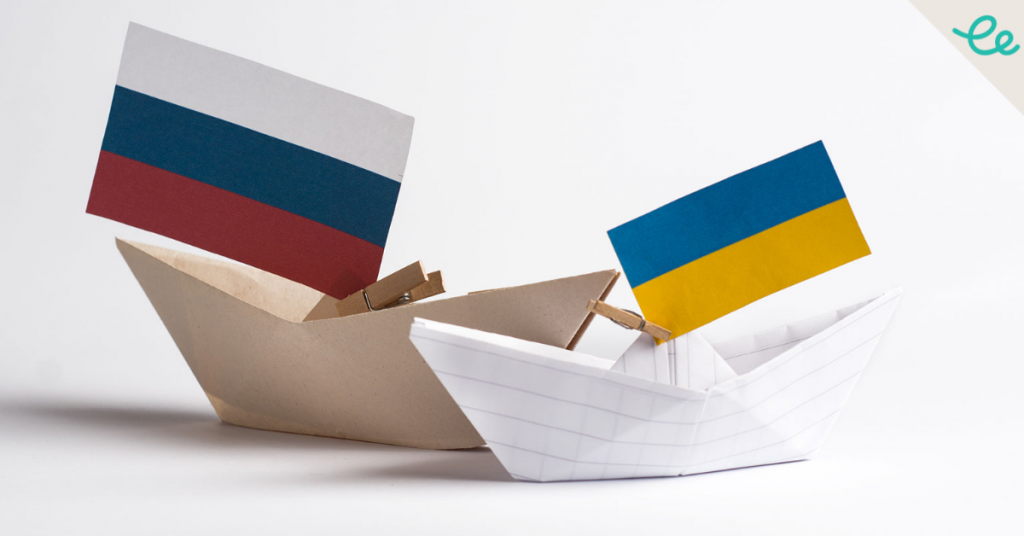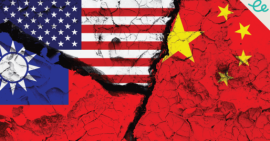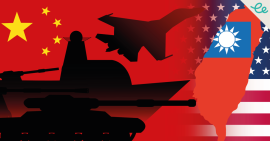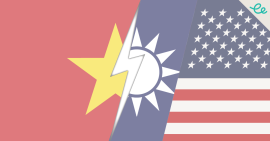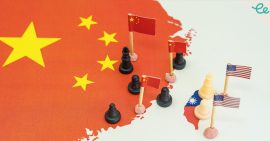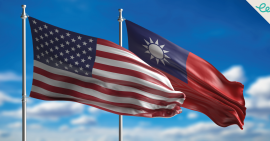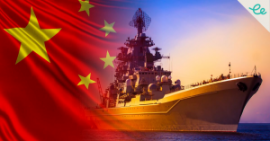Vladimir Putin’s brutal war on Ukraine continues to shock the world and move markets everywhere. These global tremors also highlight the difficult but crucial relationship between two non-combatants, the USA and China, who may one day face off over Taiwan. A conflict over Taiwan is the lightening rod that investors can no longer ignore.
For Beijing views the self-ruled island off its southeast coast very much as Vladimir Putin sees Ukraine: sovereign territory that has broken away but must be returned to the motherland. And the USA will likely defend Taiwan against a mainland Chinese invasion.
When US President Joe Biden flew to Europe on March 23, to meet allies and keep setting the agenda on the war in Ukraine, China’s perceived support for Russia’s war was expected to feature at all his meetings with the European Council, NATO and the Group of 7 nations.
In Brussels, Biden reiterated his warning to Beijing against coming to Russia’s aid. He said that he made clear such assistance would incur “consequences” in an 18 March phone call with Xi Jinping, their first direct talks since November. The US red lines include: don’t take advantage of business opportunities created by sanctions, help Moscow evade export controls or process its banned financial transactions.
Biden said he believes Xi understands that China’s economic interests lie with the West, not Russia. But Putin won’t share that impression. Xi has called the Russian leader his “best friend”, with whom Xi declared a partnership “with no limits” on 4 February in Beijing, the opening day of the Winter Olympics. Putin at least delayed his invasion until after the Games, unlike in 2008, when he sent tanks into Georgia on the opening day of the Beijing Summer Olympics.
The full-scale military assault on Ukraine has greatly complicated life for Putin’s Chinese partner. While China has long publicly advocated for a “multi-polar world”, to combat US “hegemony”, this invasion has seriously emboldened the EU and other China critics.
For Europe and the USA, the issue has become an existential struggle between liberal democracy and authoritarianism which they cannot afford to lose. European leaders believe that at best China failed to dissuade Putin from launching his invasion, and at worst that it was quietly complicit. Unless China does something to change that perception, an EU already disenchanted with China will adopt a much harder line.
Beijing played down the prospect of war throughout February, and said the US was the “culprit” for “hyping tensions” and expanding NATO towards Russia. Once Putin launched his attacks, Beijing sat on the fence, yet clearly titled towards Moscow by failing to condemn the invasion and expressing sympathy for Russia’s “reasonable security concerns”.
The Foreign Ministry has slammed sanctions imposed by the US and others, and called for a negotiated settlement that more optimistically minded analysts interpreted as a sign Beijing may mediate in this bloody conflict. Ukraine hosts many Chinese investments and is a partner in Xi’s signature Belt and Road Initiative.
But China, driven by self-interest, has no pedigree as a Norway-style international peace broker. Those Ukrainian projects pale beside Beijing’s commitment to Moscow, where recently concluded bilateral energy and food deals appear just the latest signals of China’s economic alignment with Russia.
“What happened up to now is only a beginning for both the Russian expansionism by force and the Chinese economic and financial support to Russia,” Shi Yinhong, an international relations professor at Beijing’s Renmin University, told the New York Times. “This does not mean that China directly supports in any degree that expansionism – this only means that Beijing strongly feels the necessity to maintain and boost strategic partnership with Moscow,” he said.
“As a member of the global partners of democracy, Taiwan is not absent, and we fully support Ukraine,” said Taiwan President Tsai Ing-wen in early March. She also pledged one month’s salary to aid humanitarian relief efforts for Ukraine (Tsai’s reported to earn around $14,250 a month).
Taiwan has joined Western-led sanctions on Russia, despite minimal bilateral trade. Amid rising military pressure from the mainland in recent months, fears have grown that Beijing could take advantage of the West’s distraction to seize Taiwan. Tsai has ordered the armed forces to step up surveillance and combat readiness.
Thanks to Ukraine, the island is considering extending compulsory military service for young citizens from four months to a year. Taiwan has also doubled the length of annual reserve training. “Facing a growing authoritarian threat, the people of Taiwan are committed to defending our nation & way of life,” Tweeted Tsai after donning military gear to visit reservists on March 12.
Mike Mullen, former chairman of the Joint Chiefs of Staff, told Tsai in March that “now more than ever, democracy needs champions”. At the same time, the US opposes “any unilateral changes to the status quo and will continue to support a peaceful resolution of cross-strait issues, consistent with the wishes and best interests of the people of Taiwan,” said Mullen, in a warning to Beijing – and a reminder to Taipei not to declare independence, which would trigger a Chinese invasion.
Just how long can this status quo hold across the Taiwan Strait? At Enodo Economics, we don’t expect imminent action, but some seasoned observers are fearful. Xi Jinping is, “along with Putin, the most dangerous man in the world,” said Winston Lord, a former US Ambassador to China, who attended President Nixon’s 1972 meetings with Mao.
“I know this nation. We’ll meet the test, protect freedom and liberty, expand fairness and opportunity. And we will save democracy,” declared President Biden his first State of the Union address on 1 March. An even stiffer test may come when China moves to “recover” Taiwan. But Putin too could remain a long-haul challenge. After all, Saddam Hussein stayed on as Iraqi leader for 13 years after his 1990 invasion of Kuwait.
Related Articles:
China to Taiwan: “You can’t fight us” – https://blog2.enodoeconomics.com/2022/01/24/china-to-taiwan-you-cant-fight-us/
Diplomats meet – and talk past each other – https://blog2.enodoeconomics.com/2021/07/31/us-china-relations-diplomats-meet-and-talk-past-each-other/
Biden Assembles United Front Against Beijing – https://blog2.enodoeconomics.com/2021/07/02/biden-assembles-united-front-against-beijing/
Competition Replaces the Era of Engagement – https://blog2.enodoeconomics.com/2021/05/28/us-china-relations-competition-replaces-the-era-of-engagement/

